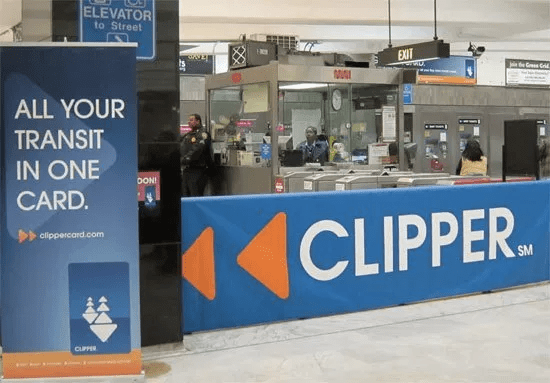Note: Metropolitan Shuttle, a leader in bus shuttle rentals, regularly sponsors coverage on Streetsblog San Francisco and Streetsblog Los Angeles. Unless noted in the story, Metropolitan Shuttle is not consulted for the content or editorial direction of the sponsored content.
I had an appointment Friday in Western Alameda. The fastest way to get there without driving was to take a ten-minute ferry ride from my home in Jack London Square (JLS) across the estuary to Alameda Main Street, and then bike for another eight minutes.
But my experience ended up illustrating everything that's wrong with fares in the Bay Area.
I biked over to the 9:15 a.m. ferry and enjoyed a peaceful ride across the channel. However, when I tapped out at Alameda, the Clipper machine displayed a charge of $11.30, rather than the San Francisco Bay Ferry 'short hop' fare of a $1.70, designed for people who just want to make the crossing between JLS and Alameda. (Since most ferries between Oakland and San Francisco stop in both locations anyway, it doesn't cost anything to offer the service; that said, it's of limited use given how infrequently the ferries run).
When I got home (on the way back, I donned my ear plugs and respirator and biked through the Posey tube) I called Clipper support. After ten minutes of phone tree and hold music, I got a human. She looked up my Clipper account and acknowledged that the fare was obviously wrong. However, she told me to call back in 24 hours because the system wouldn't let her refund the money until the next day.
Huh?
Begrudgingly, I called back the next day (note by the time I got through the phone tree a second time, I'd already spent twice as long on the phone as the duration of the ferry ride). This time the customer service rep claimed the 'short hop' fare was only available to users of their fare-payment app (which is not what it says on the ferry's web page). "This is why we encourage people to get familiar with our fare structure," she said, repeatedly.
Eventually she relented and agreed to put me in for a refund--which, she said, could take thirty days, if it's approved. Of course, the only way the $11.30 charge would be valid is if I bent space-time and actually traveled between San Francisco and Vallejo (an hour-long trip) but somehow used the fare readers in Oakland and Alameda.*
"Clipper is especially frustrating because there’s little forgiveness for users (or in your case, operator) error, yet it’s incredibly onerous to resolve problems. So it’s like two slaps in the face for transit users," wrote Ian Griffiths, co-founder of Seamless Bay Area, which advocates for fare policy rationalization and integration. "Meanwhile, Lyft and Uber make their billing pretty transparent, viewable immediately before and after you take a trip, and if there are ever any problems, like overbilling, in my experience they have been dealt with very promptly."
"But the larger issue," wrote Arielle Fleisher, Transportation Policy Director at SPUR, "is our dizzying array of fare structures, prices and passes."
It reminded me of the time a friend was visiting from San Diego. He wanted to go from Castro Muni to Berkeley. He tried to tap into the system with his BART ticket. I explained that was the wrong ticket. We went to a Muni ticket machine. It rejected his credit card a couple of time, which is super annoying considering he’d loaded up a perfectly valid BART ticket a few hours earlier. After a couple of minutes of struggling with the machine, and realizing he had to pay two full fares to get to Berkeley instead of one, he looked at me and said “you know, if you weren’t here, I’d have given up and taken an Uber.”
That’s how most people react to this ongoing stupidity, where transit operators bemoan the loss of customers, and then deliberately perpetuate a system that's so complicated that apparently even the people who programmed the ferry's Clipper readers can't figure it out. Why do we need a "short hop" fare anyway? Why do we need to separate fares for Muni, BART, AC Transit, etc? It should just be one fare per zone, regardless of whether one chooses to ride a bus, train, ferry, or regional train.
This panoply of arbitrary fare structures, with limited or no transfers between modes, is killing ridership. Incoming BART General Manager Bob Powers and SFMTA's interim head Tom McGuire need to get together by the end of the summer with a plan for kicking off fare rationalization and integration, under a strong, customer-focused system. Then they can start working on Caltrain, AC Transit, Golden Gate, etc. and, yes, San Francisco Bay Ferry, to get on board. Fares need to be simple and make sense across all operators, with no penalty for transferring. If transit operators can't do it, then it needs to be legislated in Sacramento. To do otherwise is transit malfeasance and a gift to Uber and Lyft.
*Note: if I could bend space, I would not take public transit.






